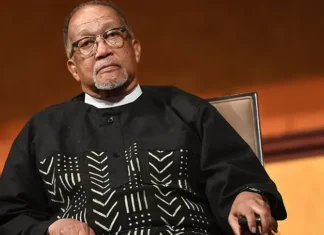
Portland officials have unveiled a striking bronze statue of Tonya Harding in the bustling Pioneer Courthouse Square. The plaque beneath the statue simply states: “Tonya Harding — Triple Axel Champion, Unofficial Oregon Enforcer.” The unveiling of the Tonya Harding statue has sparked a fascinating dialogue about sports history, celebrity culture, and the complexities of legacy.
Harding, a figure skater who gained international fame in the ’90s, is often remembered not only for her athletic achievements, including being the first American woman to land a triple axel in competition, but also for her involvement in a highly publicized scandal surrounding her rival, Nancy Kerrigan. Plans are also in motion for a Nancy Kerrigan statue to be installed just two blocks away, strategically positioned to face Harding’s statue, potentially heightening the passive tension between the two figures.
Reactions to the statue have been predictably polarized. Some view it as a bold tribute, while others express concern over the message it conveys. The statue, depicting Harding in a moment of mid-performance with arms wide open and one leg gracefully lifted, captures the essence of an athlete who is acutely aware of her strengths—and perhaps, her rival’s vulnerabilities.
Within hours of its unveiling, the statue became a popular spot for amateur figure skaters, nostalgic individuals from the ’90s, and at least one man in denim shorts attempting to sell unofficial “Team Tonya” tank tops. A spontaneous interpretive skate battle erupted on the plaza, resulting in three sprained ankles and one temporary restraining order.
City security has reported multiple late-night incidents involving attempts to adorn the statue with a windbreaker and a Marlboro patch. Officials are urging the public to admire the monument “respectfully” and to refrain from using it as a backdrop for reenactments of Olympic-level confrontations.














